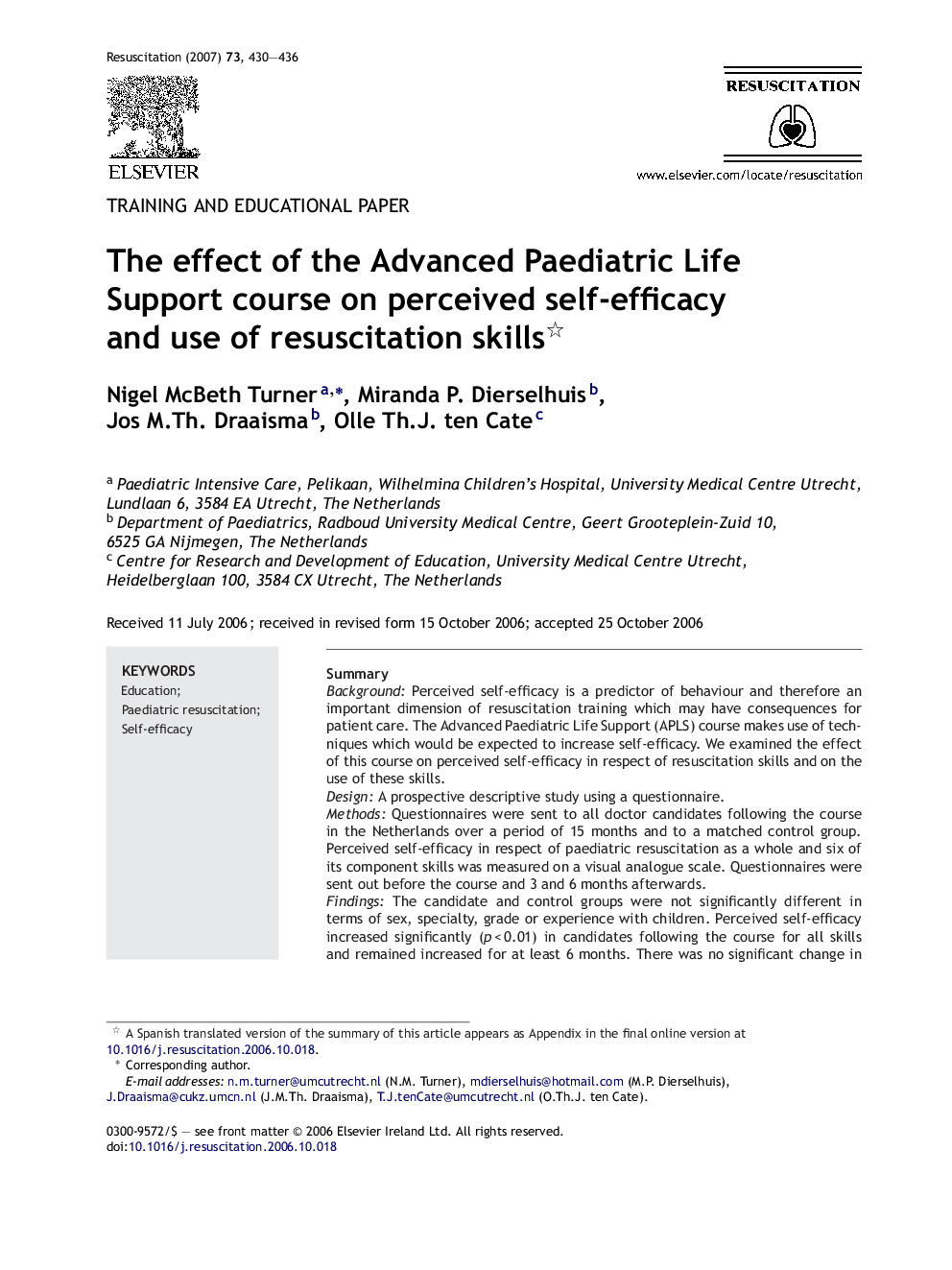| Article ID | Journal | Published Year | Pages | File Type |
|---|---|---|---|---|
| 3010924 | Resuscitation | 2007 | 7 Pages |
SummaryBackgroundPerceived self-efficacy is a predictor of behaviour and therefore an important dimension of resuscitation training which may have consequences for patient care. The Advanced Paediatric Life Support (APLS) course makes use of techniques which would be expected to increase self-efficacy. We examined the effect of this course on perceived self-efficacy in respect of resuscitation skills and on the use of these skills.DesignA prospective descriptive study using a questionnaire.MethodsQuestionnaires were sent to all doctor candidates following the course in the Netherlands over a period of 15 months and to a matched control group. Perceived self-efficacy in respect of paediatric resuscitation as a whole and six of its component skills was measured on a visual analogue scale. Questionnaires were sent out before the course and 3 and 6 months afterwards.FindingsThe candidate and control groups were not significantly different in terms of sex, specialty, grade or experience with children. Perceived self-efficacy increased significantly (p < 0.01) in candidates following the course for all skills and remained increased for at least 6 months. There was no significant change in perceived self-efficacy in the control group. There was no change in the use of skills or in the number of critically ill children seen, in either group.ConclusionsThe APLS course does have an important effect on perceived self-efficacy but this is not related to an increase in the frequency of use of the skills learned on the course, partly because the opportunity for increased use is lacking. Further work is needed to determine whether the quality of those skills is improved by the course.
